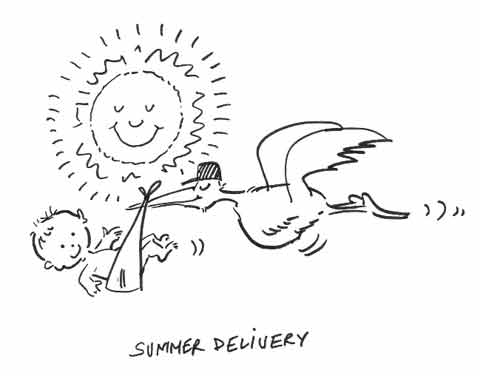|
|
|
Could a lack of vitamin D from sun explain why winter babies are more allergy prone? |
Babies born in autumn or winter are more likely to develop a food allergy than those born in spring or summer, US researchers have found. In a report in the journal Annals of Allergy, Asthma & Immunology doctors from Massachusetts General Hospital in Boston reviewed all of 1,002 patients with food allergies who had been seen in three local hospital emergency departments over a period of six years. They then compared the months of birth in patients with food allergy with those of patients visiting the emergency rooms for reasons other than food allergy. In patients who were five years old or younger allergies appeared to be linked with season of birth: 59% of the children born in winter or autumn were treated for allergy whereas only 41% of those born in spring or summer. Although the researchers acknowledge that other factors, such as infections, family history of allergies, maternal and infant dietary patterns, and exposure to indoor pollutants, may contribute to food allergies, they believe that vitamin D deficiency, and hence month of birth, could be a significant potential risk factor in the development of food allergies. Courtesy of the BBC
First Published in April 2010 Click here for LINKS to manufacturers of nutrition and food supplements. |









